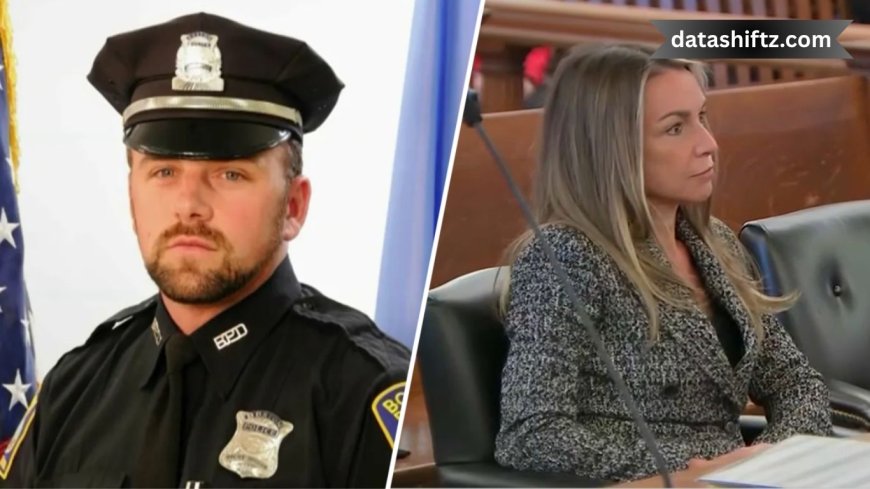John O’Keefe : Breaking Developments and Ongoing Controversy

Latest Headlines
Karen Read Acquitted of John O’Keefe’s Murder
A jury on June 18, 2025, returned a verdict in the high-profile Boston-area case: Karen Read was found not guilty of second‑degree murder in the death of her boyfriend, Boston police officer John O’Keefe, whom she dated from 2020 until his death on January 29, 2022 . However, she was convicted of the lesser charge of operating under the influence (OUI) and sentenced to one year of probation .
Conflicting Narratives in Court
Prosecutors claimed Read struck Officer O’Keefe with her SUV following a late-night dispute, then left him to perish in freezing temperatures . In contrast, the defense presented a theory that O'Keefe was dropped off alive at a party at fellow officer Brian Albert’s home and was later injured—or even beaten—inside before being placed outside, suggesting a potential law enforcement cover‑up .
Eyewitness Reactions
Some witnesses at the house party have publicly criticized the verdict, calling it a “miscarriage of justice” and a result of distorted narratives . A joint statement from several party attendees expressed sympathy for O’Keefe’s family and condemned what they perceive as misleading conspiracy theories .
Background & Timeline
Events in John O’Keefe’s Death
| Date | Event |
|---|---|
| Jan 29, 2022 | O’Keefe’s body found unconscious in snow outside Brian Albert’s home in Canton, MA—later pronounced dead |
| Feb 2022 | Karen Read was arrested and charged with manslaughter, motor-vehicle homicide, leaving the scene, and later indicted for second-degree murder |
| July 2024 | First trial ended in mistrial due to jury deadlock |
| Jan 2025 | Retrial began after judge set new trial date |
| June 18, 2025 | Jury acquits Read of major charges; finds her guilty only of DUI |
The Controversial Inquiry
The defense highlighted troubling signs of potential investigative misconduct—most notably, derogatory texts from Massachusetts State Trooper Michael Proctor and alleged mishandling of key evidence . The prosecution's narrative leaned heavily on forensic analysis such as taillight parts found on both Read and her car, reconstruction tests, and testimony from crash experts .
Public & Family Reaction
-
Family response: Officer O’Keefe’s relatives left the courthouse in silence, visibly shaken.
-
Witness dissent: Several partygoers expressed outrage, questioning the integrity of the judicial process and lambasting what they called “a cruel miscarriage of justice” .
-
Supporters rally: Read’s supporters, many wearing pink, cheered outside the courthouse, framing the verdict as a check against perceived corruption and overreach in law enforcement investigations .
What This Means
-
Legal precedent: This case spotlights the complexity of proving criminal intent in “hit-and-run” allegations, especially when alternative explanations exist.
-
Investigative oversight: Questions around police conduct and evidence handling can significantly influence jury perceptions.
-
Media amplification: Coverage by true-crime outlets and bloggers intensified scrutiny, complicating public perceptions and possibly swaying jury sentiment.
-
Civil implications: Read faces a pending civil lawsuit from O’Keefe’s family—though criminal charges have been dropped, this could mean fresh legal challenges ahead .
-
Public sentiment: The verdict has triggered polarized reactions—what some see as exoneration, others view as miscarriage of justice.
Conclusion
This verdict marks a dramatic climax in a saga that has alternately gripped and divided communities across Massachusetts. For Karen Read, it’s a reprieve from criminal prosecution, yet with future legal battles looming and a tainted public image. For O’Keefe’s family and supporters, the jury’s decision may feel like unfinished business—an unanswered plea for accountability.
The wider significance? It illustrates how complex and contested truth can become in cases with inconsistent evidence, potential institutional biases, and explosive narrative strategies. As the dust settles, multiple stories continue to unfold: the civil case against Read, reforms in law enforcement accountability, and the enduring question of how justice reckons with uncertainty.





























